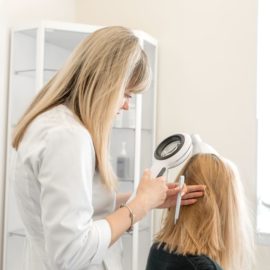Among vegan consumers, the question ‘is keratin vegan’ is common and met by a straightforward answer: keratin is derived from animals and thus, isn’t vegan. However, with cruelty-free beauty as a long-standing trend that’s gaining pace, particularly amongst young people, products such as vegan keratin are seeing a significant increase in consumer demand. That is, the growth of products that represent a valid alternative to keratin and that aren’t derived from animal sources.
This effort responds to a promising and ever growing cosmetic market opportunities for vegan launches. Between 2013 and 2018, there was a 175% growth in vegan cosmetic launches, according to Mintel. Now, 67% of Gen Z would stop using brands that used unethical practices and a further 55% only use cruelty-free products (Mintel, 2020). In light of the COVID-19 pandemic, this prioritization of cruelty-free products is set to be further emphasized. As connections emerge between the spread of the virus and wet markets and meat processing plants, consumers are increasingly concerned with animal welfare as it pertains to the wider environment.
This trend is relevant to the entire beauty and personal care segment, and hair care is no exception. Consumers are looking for cruelty-free, vegan products free of animal-derived ingredients that also enhance hair wellness. This tendency is reflected in the market: last year, ‘vegan’ was amongst the top five claims within the natural/organic BPC market (Mintel, 2019). Therefore, formulating vegan keratin alternatives to this traditionally animal-derived ingredient is of particular concern to an industry where natural, plant-based claims are becoming the new key brand differentiator.
Content
Is keratin vegan?
In light of the vegan beauty trend, the synthetizing of vegan keratin has become a key obstacle: in the past, applied keratin has been animal-derived. Like human hair and nails, hooves, feathers, and horns are made of keratin.
In fact, many hair products with keratin claims contain ground animal parts to make the product. Technically, there is no synthetic vegan keratin and it can’t be extracted from plants in quite the same way. Naturally, this is an issue if you are looking for a vegan keratin treatment.
The benefits of keratin and vegan alternatives for hair health
Keratin is an essential protein in the structure of hair. As such, many consumers look to enhance their hair health at keratin formulas and their vegan alternatives. Some of these benefits include:
- Hair is stronger and gets repaired. Keratin is part of the hair shaft and in charge of providing strength, structure, and elasticity. As such, it can play a key role in repairing damaged hair, reducing its breakage, potential split ends, and frizz.
- Enhanced hair appearance, including a smoother texture
- Increased hair elasticity without risk of breakage
- Added shine and vibrancy
- Protection against environmental factors such as UV radiation or pollution
How does keratin strengthen hair?
An equally ubiquitous hair care trend is keratin – and this isn’t without good reason. Keratin is a protein that already occurs naturally in the hair, forming a protective shield around the hair shaft that helps it stay elastic, soft, and shiny. Unfortunately, keratin can be depleted due to heat, styling, chemicals, and other environmental stressors.
As a result, most consumers are looking to boost their keratin to strengthen their hair among other natural ingredients for hair care. You can increase keratin production naturally by consuming more proteins like lean meat, beans, eggs, hemp, or nuts. Alternatively, you can also apply keratin directly to the hair through shampoos, conditioners, and other treatments: this year, 45% of American consumers said that when they are buying conditioner, strengthening hair is an important purchase driver (Mintel, 2020).
Frequently asked questions about vegan keratin
What is vegan keratin made of?
As we’ve seen above, real keratin is necessarily derived from animal sources. However, this isn’t to say that the properties of keratin can’t be mimicked in plant-based formulas.
For instance, the synthesis of amino acids extracted from grains like rice or wheat creates hydrolyzed proteins that act as an alternative and a de facto vegan keratin treatment. In other words, cosmetic brands looking to generate vegan keratin are using rice and wheat to generate plant-based proteins that can also have an outstanding effect on hair health and one that mimics the results of using keratin. As a result, products with ‘vegan keratin’ claims are emerging, which chimes with the rising popularity of vegan claims.
This goes hand in hand with other hair care plant-based products that are looking to align with new consumer preferences: from formulas using the rhodiola complex for a holistic hair care to fighting hair follicle miniaturization and hair loss with plant-based active ingredients.
For further confirmation around these products, it’s possible to verify them through key third-party vegan cosmetic certifications, which have become crucial for successful formulas in the vegan market.
What is keratin made of?
Conventional keratin is made up of long chains of amino acids, specifically cysteine. However, the particular amino acid sequence of keratin varies for each specific type of keratin and its location. For instance, keratin found on hair and nails (known as “hard keratin”) contains higher levels of sulfur compared to the “soft keratin” found in skin.
What is vegan keratin treatment?
A vegan keratin treatment aims at providing the same smoothing and strengthening benefits as traditional keratin treatments, without using any animal-derived ingredients.
Active ingredients such as KERARICE™ act as a keratin protector, while also strengthening hair and recovering its shine and smoothness.
No comments yet
There are no comments on this post yet.





Leave a comment